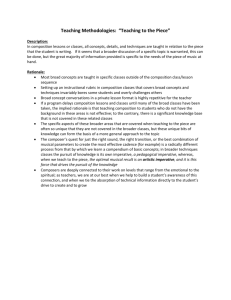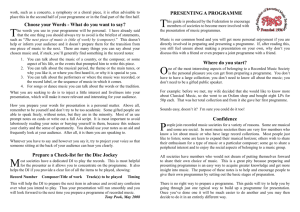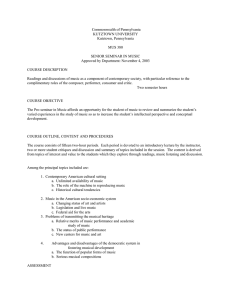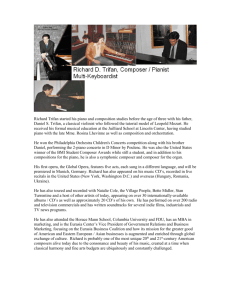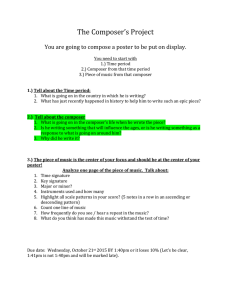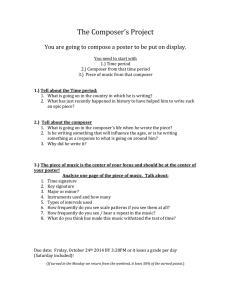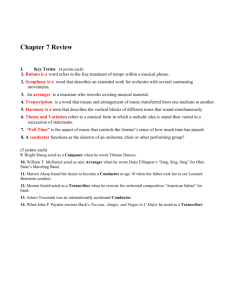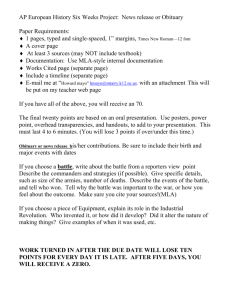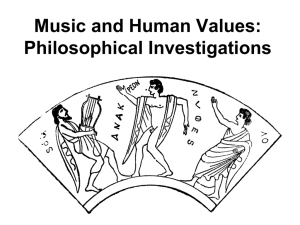Mobberley Teaching Methodology – Teach to the
advertisement
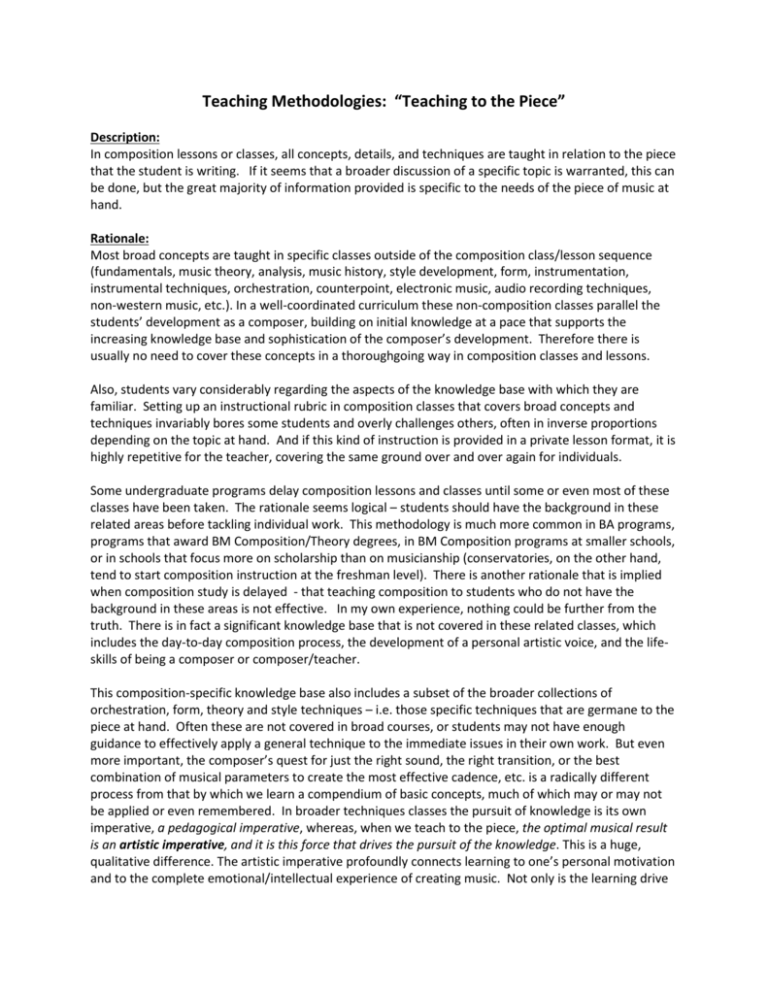
Teaching Methodologies: “Teaching to the Piece” Description: In composition lessons or classes, all concepts, details, and techniques are taught in relation to the piece that the student is writing. If it seems that a broader discussion of a specific topic is warranted, this can be done, but the great majority of information provided is specific to the needs of the piece of music at hand. Rationale: Most broad concepts are taught in specific classes outside of the composition class/lesson sequence (fundamentals, music theory, analysis, music history, style development, form, instrumentation, instrumental techniques, orchestration, counterpoint, electronic music, audio recording techniques, non-western music, etc.). In a well-coordinated curriculum these non-composition classes parallel the students’ development as a composer, building on initial knowledge at a pace that supports the increasing knowledge base and sophistication of the composer’s development. Therefore there is usually no need to cover these concepts in a thoroughgoing way in composition classes and lessons. Also, students vary considerably regarding the aspects of the knowledge base with which they are familiar. Setting up an instructional rubric in composition classes that covers broad concepts and techniques invariably bores some students and overly challenges others, often in inverse proportions depending on the topic at hand. And if this kind of instruction is provided in a private lesson format, it is highly repetitive for the teacher, covering the same ground over and over again for individuals. Some undergraduate programs delay composition lessons and classes until some or even most of these classes have been taken. The rationale seems logical – students should have the background in these related areas before tackling individual work. This methodology is much more common in BA programs, programs that award BM Composition/Theory degrees, in BM Composition programs at smaller schools, or in schools that focus more on scholarship than on musicianship (conservatories, on the other hand, tend to start composition instruction at the freshman level). There is another rationale that is implied when composition study is delayed - that teaching composition to students who do not have the background in these areas is not effective. In my own experience, nothing could be further from the truth. There is in fact a significant knowledge base that is not covered in these related classes, which includes the day-to-day composition process, the development of a personal artistic voice, and the lifeskills of being a composer or composer/teacher. This composition-specific knowledge base also includes a subset of the broader collections of orchestration, form, theory and style techniques – i.e. those specific techniques that are germane to the piece at hand. Often these are not covered in broad courses, or students may not have enough guidance to effectively apply a general technique to the immediate issues in their own work. But even more important, the composer’s quest for just the right sound, the right transition, or the best combination of musical parameters to create the most effective cadence, etc. is a radically different process from that by which we learn a compendium of basic concepts, much of which may or may not be applied or even remembered. In broader techniques classes the pursuit of knowledge is its own imperative, a pedagogical imperative, whereas, when we teach to the piece, the optimal musical result is an artistic imperative, and it is this force that drives the pursuit of the knowledge. This is a huge, qualitative difference. The artistic imperative profoundly connects learning to one’s personal motivation and to the complete emotional/intellectual experience of creating music. Not only is the learning drive stronger, but the knowledge becomes a permanent part of the student’s personal aesthetic and technique. This kind of learning is the heart and soul of the composition class/lesson experience. Composers are deeply connected to their work on levels that range from the emotional to the spiritual. As teachers, we are at our best when we help to build a student’s awareness of this connection, and when we tie the absorption of technical information directly to the student’s drive to create and to grow. Providing this kind of mentorship to students from the day they enter music school gives them the best chance of fully developing their skills and artistry. I would contend that students who do not study composition until their junior year simply fall two years behind their peers in critical aspects of their development. Finally, this is not to suggest that composition students do not need to take general courses in musical technique. It is the combination of the broader approach to developing a general knowledge base and the more immediate experience of working toward ideal choices for the piece at hand that provides a developing composer with the best combination of skills.
